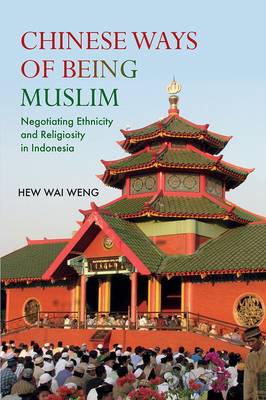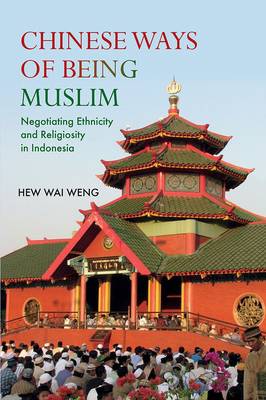
Je cadeautjes zeker op tijd in huis hebben voor de feestdagen? Kom langs in onze winkels en vind het perfecte geschenk!
- Afhalen na 1 uur in een winkel met voorraad
- Gratis thuislevering in België vanaf € 30
- Ruim aanbod met 7 miljoen producten
Je cadeautjes zeker op tijd in huis hebben voor de feestdagen? Kom langs in onze winkels en vind het perfecte geschenk!
- Afhalen na 1 uur in een winkel met voorraad
- Gratis thuislevering in België vanaf € 30
- Ruim aanbod met 7 miljoen producten
Zoeken
€ 117,95
+ 235 punten
Uitvoering
Omschrijving
In contrast to many recent works on Muslim societies, which point to an increasing 'de-culturalization' and 'purification' of Islamic practices, this engaging study probes deeply into the nexus between religion and ethnicity. By exploring architectural designs, preaching activities, cultural celebrations, social participation and everyday practices, this book explores the formation and contestation of Chinese Muslim cultural identities in today's Indonesia. Here, for instance, it scrutinizes Chinese Muslim leaders who strategically promote their unique identities by rearticulating their histories and cultivating ties with Muslims in China. Yet, their intentional mixing of Chineseness and Islam does not reflect all aspects of the multi-layered and multifaceted identities of ordinary Chinese Muslims - there is no single 'Chinese way of being Muslim' in Indonesia. Moreover, asserting Chinese identity and Islamic religiosity need not imply racial segregation and religious exclusion; it can act against them. The study thus helps us to understand better the cultural politics of Muslim and Chinese identities in Indonesia, giving insights into current possibilities and limitations of ethnic and religious cosmopolitanism. In so doing, Chinese Ways of Being Muslim offers unique insights into the cultural politics of Muslim and Chinese identity in Southeast Asia today.
Specificaties
Betrokkenen
- Auteur(s):
- Uitgeverij:
Inhoud
- Aantal bladzijden:
- 288
- Taal:
- Engels
- Reeks:
Eigenschappen
- Productcode (EAN):
- 9788776942106
- Verschijningsdatum:
- 31/12/2017
- Uitvoering:
- Hardcover
- Formaat:
- Genaaid
- Afmetingen:
- 157 mm x 231 mm
- Gewicht:
- 616 g

Alleen bij Standaard Boekhandel
+ 235 punten op je klantenkaart van Standaard Boekhandel
Beoordelingen
We publiceren alleen reviews die voldoen aan de voorwaarden voor reviews. Bekijk onze voorwaarden voor reviews.









